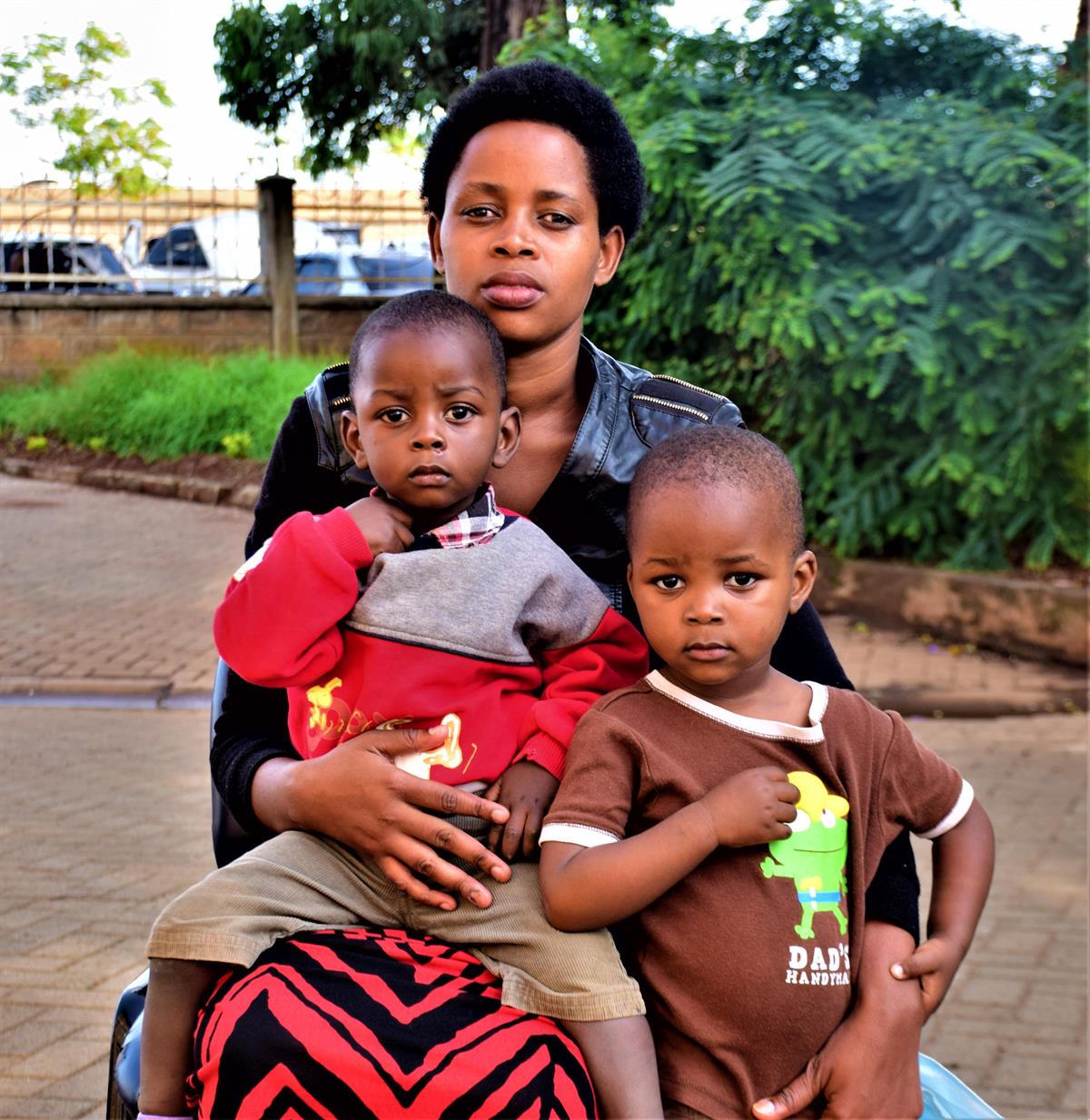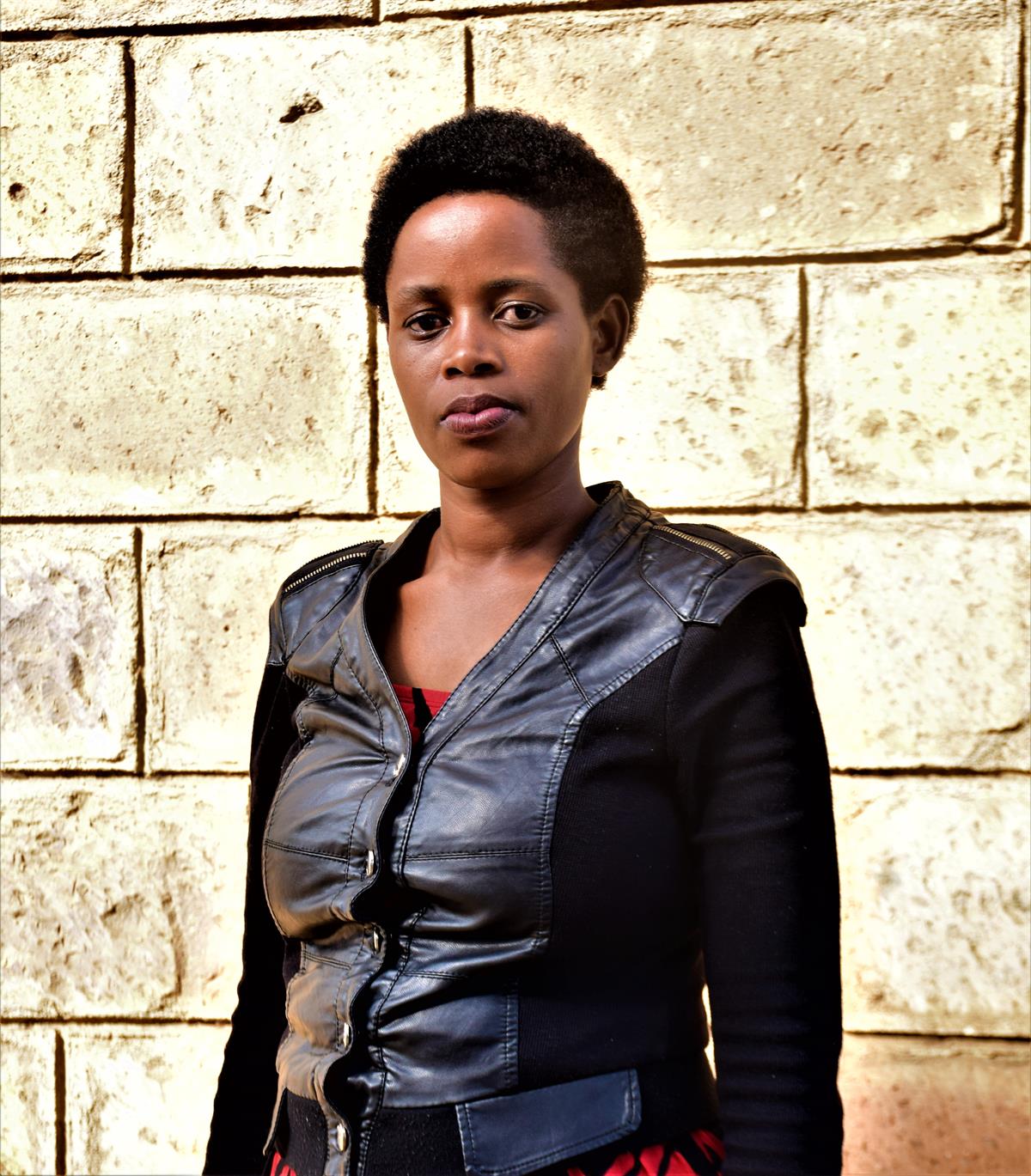Alice Umutoni was 19 years old when violence spiked in her home country, the Democratic Republic of the Congo. She was home with her family when the neighbors began to scream. Within minutes, they heard more gunshots than they could count. Scared, they started to run in different directions. There was no time to pack belongings. One of the neighbors had to carry Alice to safety after finding her unconscious. Her family was nowhere to be found. Away from her loved ones for the first time, she was surrounded by strangers who had already chosen their next destination: Kenya.
Among the many challenges refugees have to face when they move to a new country, finding a place to live is the first. When she arrived in the capital Nairobi, Alice struggled to find a place to stay. Several families hosted her, but they were not prepared to help Alice process her trauma. Sometimes they would harass and abuse her. Feeling emotionally isolated, Alice would spend days without saying a word, or eating. She also suffered from panic attacks.
“I didn’t know how I was going to cope with the world,” remembers Alice, who is now 25 years old.
Out of school, struggling with her emotional trauma, and pressured by her peers, Alice ended up getting married. But the hardship was not over. The high cost of living in urban settlements surpassed the family’s ability to keep up with basic needs, like paying for food and rent. Alice’s husband works as a carpenter, but it’s not easy to find a job, especially during the COVID-19 pandemic. To make the situation even more challenging, their 1-year-old son needed to follow a strict nutritional diet after developing malnutrition-related complications and had to stay in a hospital for seven months.
Alice’s life began to change when she joined the Imarisha Jamii project (Imarisha Jamii is a compound of two Swahili words: Imarisha, strengthen and Jamii, community). With funding from UNFCU Foundation, AVSI partners with AVSI Kenya to support adolescent girls and young women in urban refugee communities as they build a path out of extreme poverty by engaging in business skills training and income-generating activities, like dress-making, baking, cooking, and detergent making.


“Vulnerable households are empowered to effectively provide for their children through access to psychosocial services and economic strengthening programs,” says Romana Koech, AVSI Kenya Country Representative. “Training sessions have strengthened and equipped women with holistic coping mechanism, cutting across psychosocial wellbeing and business skills training that focus on giving young women the economic survival skills they need for life in Kenya.”
After attending a series of training sessions, Alice can now positively face her fears, and has adopted essential entrepreneurial skills like confidence and resilience. Alice also belongs to one of the Community Savings and Loans Associations (CSLAs) set-up with the project’s support to pool resources and start-up micro businesses.
“I plan to get a loan and open a store to sell fruit and vegetables,” says Alice, who is currently doing odd jobs in her neighborhood.
Before, Alice and her husband’s greatest concern was feeding their children. Thanks to the Imarisha Jamii project, she learned how to prevent and treat malnutrition and take care of her children wisely: “I’m very happy with their growth".